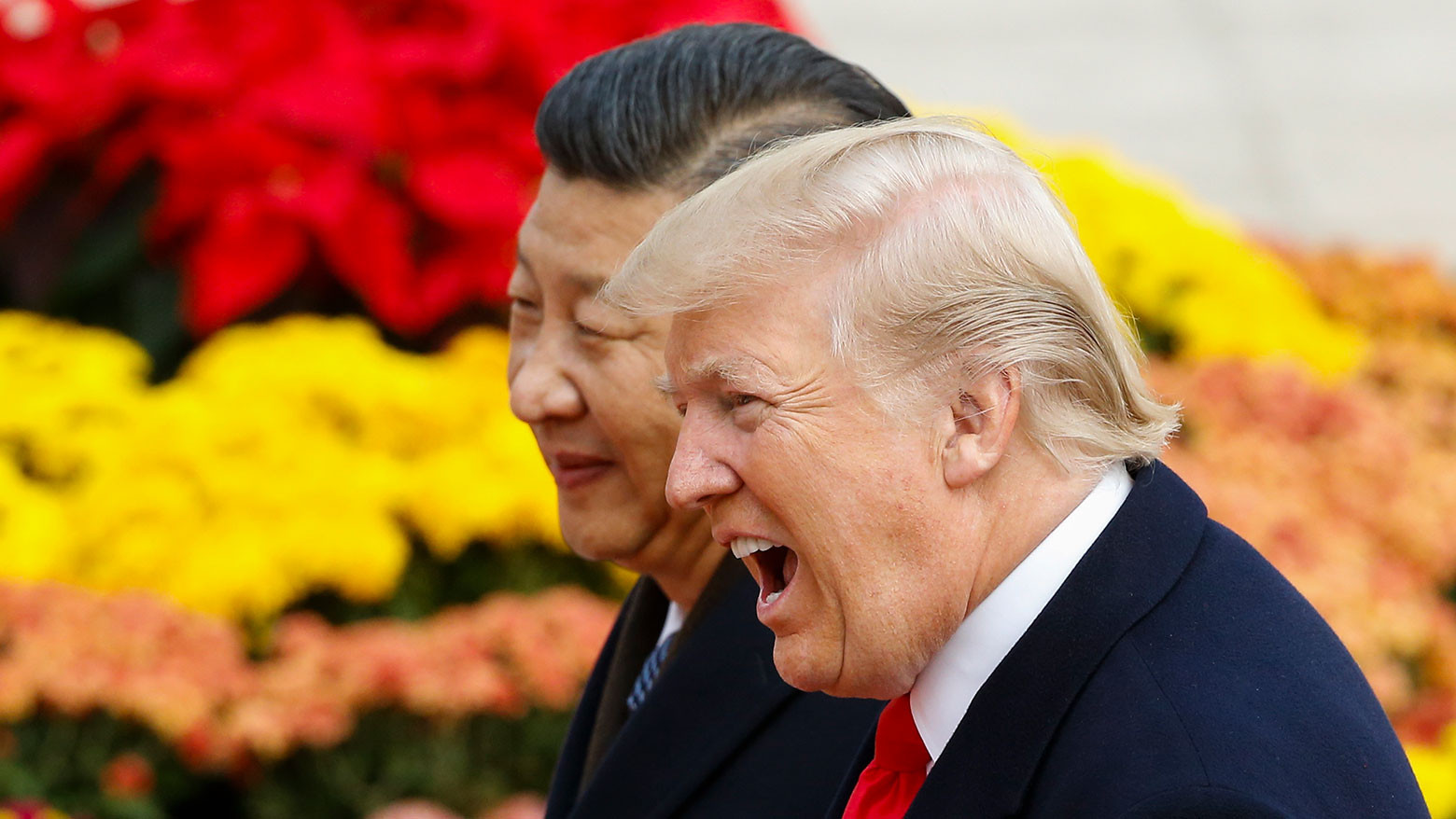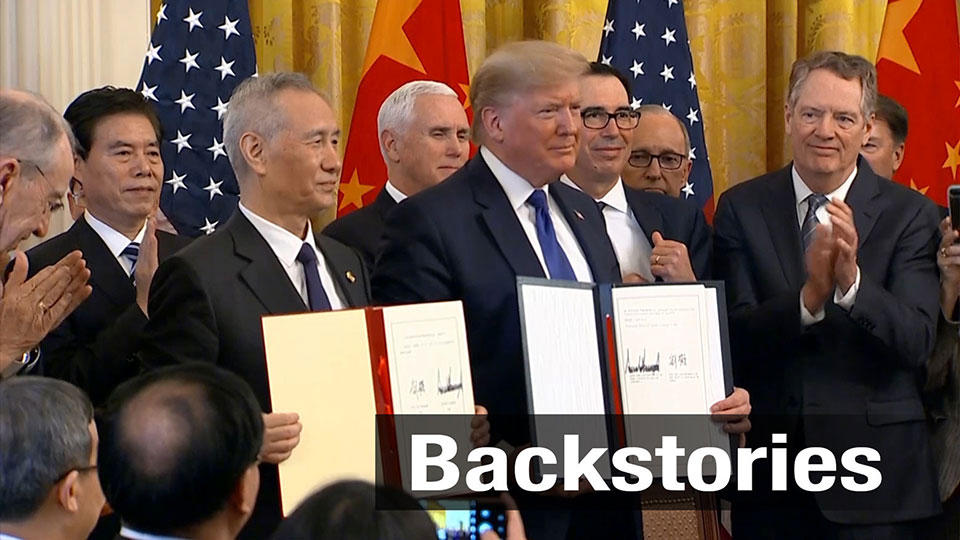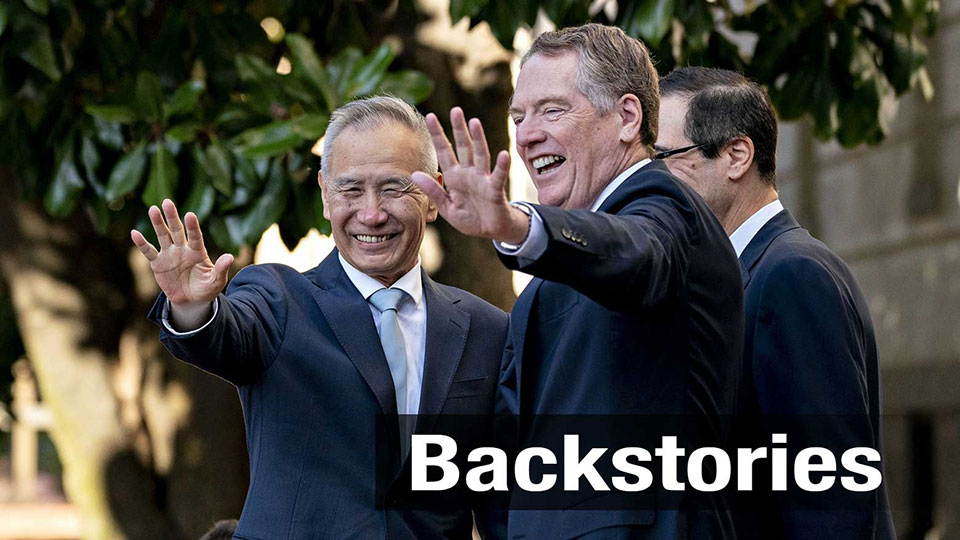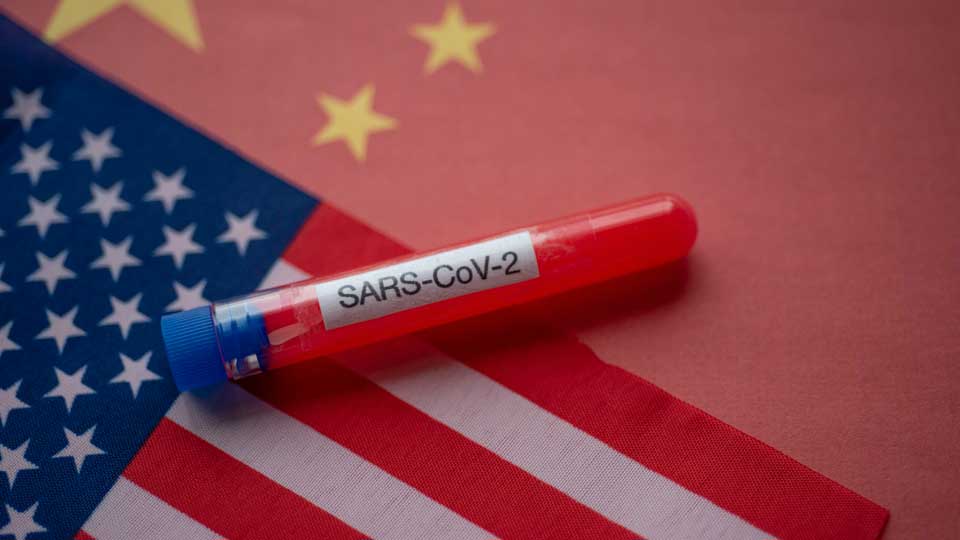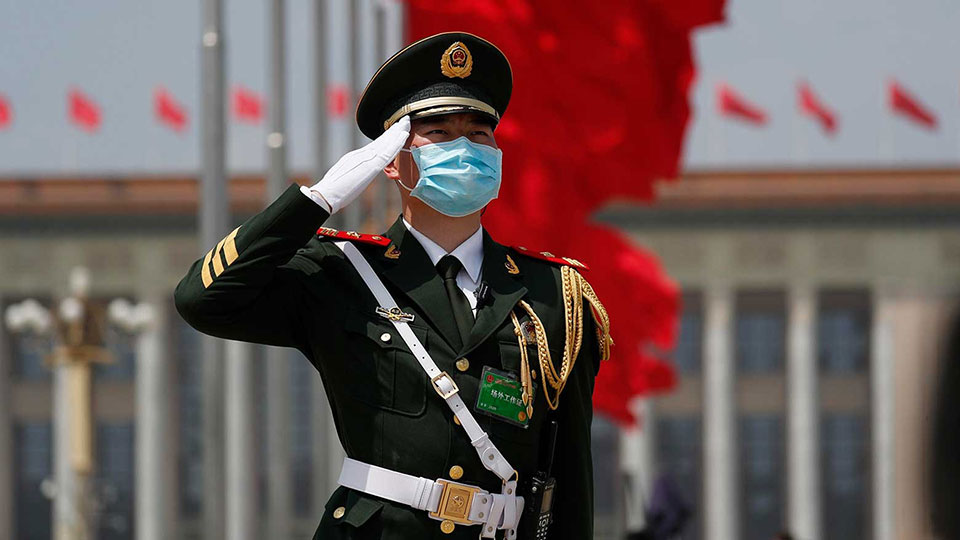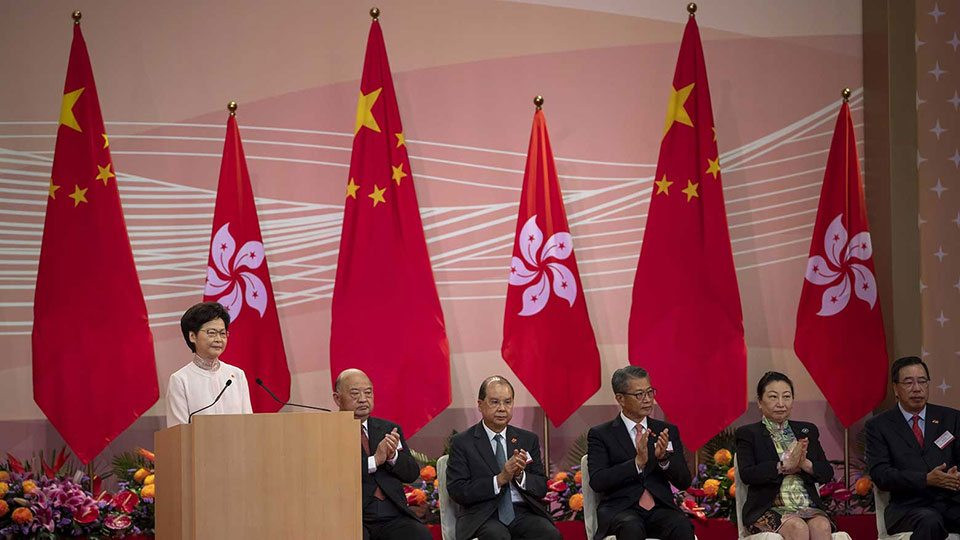Both sides want to end the trade war
The US government fired the first shots of the trade war in March 2018, when it sharply increased tariffs on steel and aluminum to address what it said were unfair trade practices. That sparked rounds of tit-for-tat tariff hikes by Washington and Beijing.
Then, in January, Trump and Chinese Vice Premier Liu He signed the first phase of a deal.
China wanted to ease friction with the US to stop its economy from slowing down. Trump had his eye on his re-election bid and wanted to boost his popularity among farmers. China agreed to increase imports of US farm products and other products by more than $200 billion over the next two years and work to protect intellectual property.
But the coronavirus pandemic has derailed the implementation of those terms and any hope of a second phase.
5G is the key to tech hegemony
The US and China both see technology as a key geopolitical battleground, and the next-generation standard for broadband cellular networks — known as 5G — is the main focus.
In 2015, Beijing unveiled a strategic plan called “Made in China 2025” that mapped out a path to becoming the world's top manufacturing power. It called 5G a “priority area” and since then the country has become the clear leader in the race to install the technology globally.
The Trump administration has been trying to thwart that progress. In May last year, it banned US firms from selling electronic components to Chinese IT Giant Huawei without government approval. Huawei has been a driving force behind 5G and holds the largest global market share in 5G base stations.
In May this year, the US got even tougher, declaring that no manufacturer anywhere in the world could sell semiconductors to Huawei if they were using US-made manufacturing equipment.
China, meanwhile, has come up with an export ban of its own. The Export Control Law, announced in October, bans exports of sensitive materials to foreign companies deemed a threat to China's security. It’s not clear yet what those sensitive items are, but China leads the world in some parts for smartphones and electric vehicles.
Washington is taking a keener interest in the South China Sea
China is actively pushing its claims in sovereignty battles with many of its neighbors over territory in the South China Sea. The US had been relatively unengaged in the disputes, calling only for a peaceful solution, but that changed this year. US Secretary of State Mike Pompeo declared Beijing's claims to offshore resources across most of the South China Sea “completely unlawful.”
Over the summer, the US conducted an unusually large-scale exercise in the South China Sea, involving two aircraft carriers. Meanwhile, China took the rare step of conducting military drills in the South China Sea, East China Sea and Yellow Sea. Both countries’ exercises served to draw increased international attention to the issue.
US is looking to boost Taiwan’s international standing
The US government has been raising China’s ire with its increasingly overt backing of Taiwan.
Washington has been sending military aircraft and vessels to areas around Taiwan, and has agreed to sell a host of weapons to help it upgrade its military.
The US Congress voted unanimously in 2018 to pass the "Taiwan Travel Act" to promote mutual visits by senior officials — something that had previously been considered too much of a provocation. Health Secretary Alex Azar became the most senior official in more than 40 years, since the two sides severed diplomatic ties, to visit Taiwan when he led a delegation there in August.
US lawmakers gave Taiwan another boost in March when they passed an act that said the US should support Taiwanese membership of all international organizations and encourage other nations to strengthen ties with Taipei.
Beijing reacted strongly, saying: “the so-called TAIPEI Act seriously violates the one-China principle and the three China-US joint communiques. China deplores and rejects it.”
Xi Jinping’s hardline stance on Hong Kong, Uighurs is stoking tensions
China’s leader has shown an increasingly authoritarian streak in his dealings with Hong Kong and the Xinjiang Uygur Autonomous Region, and that’s prompted the US to levy sanctions and tear up agreements.
After China enacted a national security law for Hong Kong in June, the US suspended or abolished a slew of bilateral agreements with Hong Kong, including an extradition treaty and duty-free rules.
Washington also froze the assets in the US of senior Hong Kong and Chinese government officials, including Carrie Lam, Hong Kong's Chief Executive. China retaliated by suspending the implementation of an agreement between Hong Kong and the US to cooperate with investigations.
Since July, the US has been targeting senior Chinese officials in connection with what the US says are human rights violations in China's Xinjiang Uygur Autonomous Region. The sanctions include asset freezes and US entry bans.
In September, the US Department of Homeland Security announced a ban on imports of some products, citing allegations that they were produced by forced Uighur labor.
But Xi has been touting the economic impact of his policies in the region, and claims that “facts have fully proved that China's work on ethnic affairs has been successful.”
This issue is likely to be one that continues to cause relations to fray, no matter who wins the US election.
